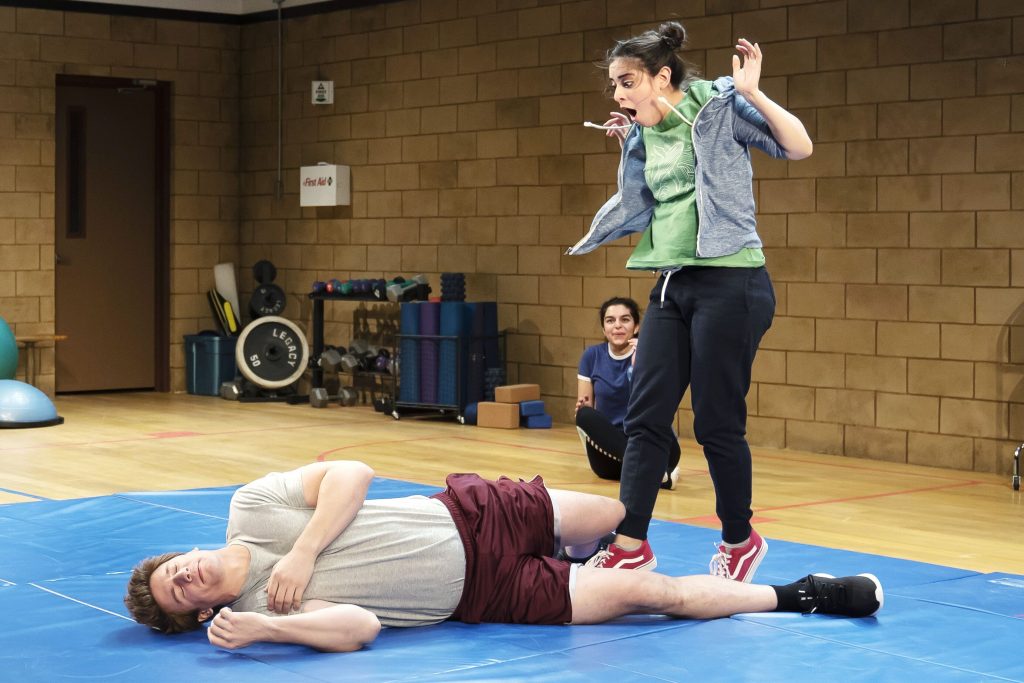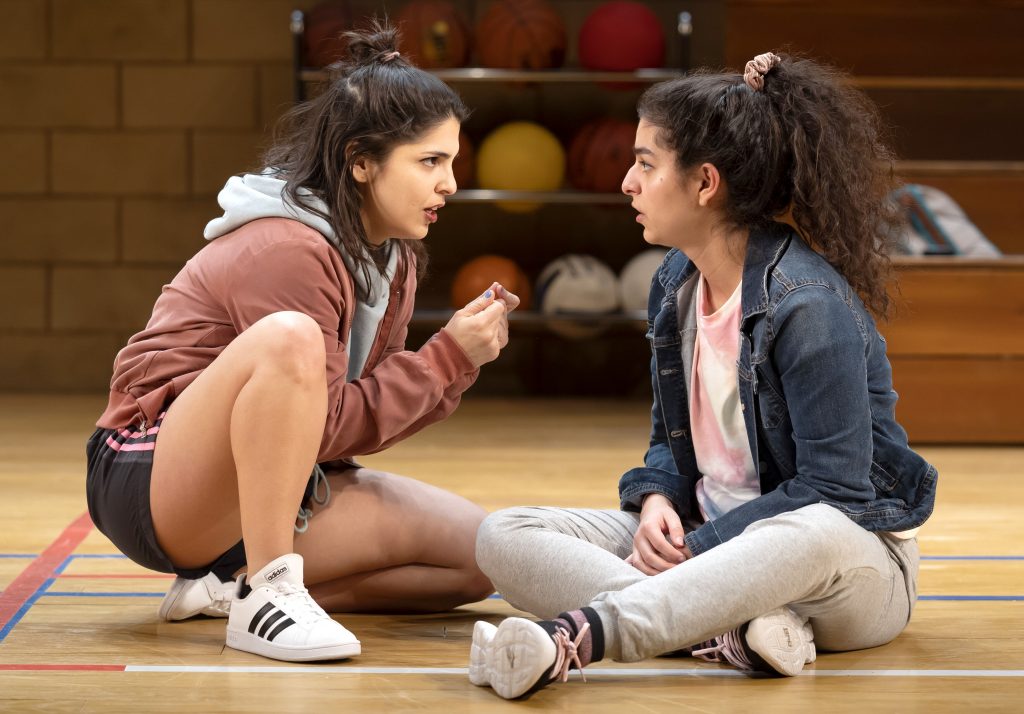
Sometimes when the lights go down and a theater stage stirs to life, you’re carried away and dropped into lives and experiences that uniquely sharpen your understanding of what it takes to either survive or thrive.
The low boiling excitement filling the air opening night for Victory Garden’s How to Defend Yourself let you know there was something singular about this play. The story about a handful of young college women taking a self-defense class began making its exceptionalism apparent right out of the gate.
Depending on where you sit on the age spectrum, you may feel the play is as much about youth and the language of youth as it about the larger concepts and concerns playwright Lilliana Padilla generally grapples with; “sex, intersectional communities and what it means to heal in a violent world”. How to Defend Yourself has all of those things and seeing them lived from the vantage point of the young crystalizes the power of their impact on individual lives.

Youth rules the play’s stage, and on the show’s opening night, filled a great many of the theater’s seats. Two students in workout drag roll into a gym. They’re there to take a self-defense class for women and talk while they wait for their trainers to show up. Friends from way back and now sorority sisters, they have that comfort with each other that erases boundaries and speak with the candor of the guileless. Especially Diana (Isa Arciniegas), who’s so open, honest and scabrous with her humor that she fuses herself to your favor almost instantly. Unfiltered and brazen during her unchecked chat with her homie, it wasn’t that surprising when she breezily confides she has a real thing for guns.
Simply for the development of its characters, How to Defend Yourself could be considered a masterwork. Offsetting one another to show how intricately different each is from the other highlights the shared and personal challenges they all face as they navigate a psychologically complex landscape. All seven of them are drawn with the same skill and care of Diana. And there’s also Suzanna, a character you never see but who sits squarely in the middle of the plot. A sorority sister who sustained a horrific sexual assault, it’s the sobering reality of the attack that drives the play and makes all of them question themselves and each other about how to live in a society that makes violence as brutal as rape normal. Ponderous? Could be. But Padilla’s far too extraordinary to let you feel the weight directly. Working with Marti Lyons, another outsized talent in the director’s chair, How I Defend Myself subversively wraps it’s tale in the stuff of everyday life, making it real, giving it a humanity you naturally absorb and filling it with people who can be as maddeningly funny as they are bright and aware.

Getting used to contradictions and things that don’t quite mesh are something you get used to in this story about finding your balance and place in the middle of so much that’s confusing. Opening benignly enough, where the rhythmic rawness of the dialogue is the thing that romances your attention, we learn many of the people we meet view some sex acts as casual and easy as a high five. “Regular” sex remains special; generally. But then there are exceptions to that too.
Acting as surrogate aggressors, two male students come into the gym to help with the class shortly after trainers Brandi (Anna Crivelli) and Tara (Netta Walker) arrive. Suzanna’s frequently referenced and, for the most part, everybody’s making the right sounds about consent and boundaries and ownership of one’s body. Tara, as Walker so marvelously plays her, begins to push back before asking in open defiance what if she doesn’t like her sex so tame. What if her mindset is much more tied to that embodied in Helen Hume’s 1946 recording, Drive Me Daddy?

The guys are hardly silent on matters of sex and are given the chance to vent their confusions and frustrations as well as voice their personal tenets about how they view sex. Eggo (Jayson Lee) walks away with the disarmingly endearing trophy when he works himself into a seethe talking about his girlfriend, or ex-girlfriend. She wanted him and sex one way but really wanted something very different. Something he was too nice and too “skinny” to deliver. His buddy, Andy (Ryan McBride) has his heart in the right place as he goes overboard endorsing the right of women to be free to choose their limits. In confidence however, he confesses to fantasies and behavior that belie some of his conviction. His silence on something’s he’s seen is even more damning and offers just one of several glimpses of what complicity can look like in this tight, wonderfully memorable production.
How to Defend Yourself
Jan 24 – Feb 23, 2020
Victory Gardens Theater
2433 N. Lincoln Ave.
Chicago, IL 60614
773-871-3000